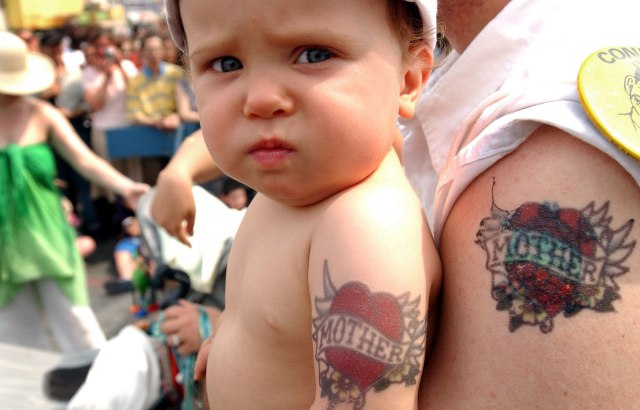Credit: Stephen Chernin / Getty

You grow up, you leave home, go to college maybe, get a job, get your own place, buy your first home, get married, have kids… and then the cycle start again.
There was a time when the counter-culture was about disrupting the inevitability of it all. Alternative lifestyles were imagined; the mortgage-and-two-kids nuclear family rejected in favour of the hippy commune.
The whole commune thing never really took off, but over the last 50 years the range of socially accepted lifestyles has broadened: cohabitation; lone parenthood; same sex coupledom; blended families; child-free lifestyles; the laddish extension of adolescence into one’s twenties or thirties.
And yet despite these variations; one convention remains firmly embedded in western culture: that as a full-grown adult one should live independently – whether on one’s own or with a partner. Moreover, after leaving home, the expectation is that one should not return.
However, this is the age of the boomerang generation – in which large numbers of young and not-so-young adults find themselves living with their parents again. Social reality is at odds with social expectation, with millions of individuals caught between the two.
According to a news item for the Max Planck Institute of Demographic Research that can have serious consequences for personal wellbeing:
“The number of young adults living in their own household has dropped dramatically in the last decades in the United States for a number of economic and social reasons. In a study that will soon be published in the peer-reviewed journal Society and Mental Health, MPIDR researcher Jennifer Caputo investigated the effects of moving back home after a period of independence on young adults’ mental health. She found that young adults who ‘boomeranged’ back to a parental home experienced an increase in depressive symptoms.”
It’s worth emphasising just how dramatic the change in living arrangements has been:
“Recent estimates from the Pew Research Center shows that U.S. adults age 18 to 34 are now more likely to live with their parents than independently or with a partner. While only 31.6 percent of young adults in this age group lived in their own household in 2014, in 1960 62 percent lived independently. “
That’s a truly stunning shift – and, furthermore, not one that be explained by changing social mores. While phenomena like the decline of marriage can be linked to the sexual revolution, there’s nothing in our culture that presents moving back home as an exciting and attractive lifestyle choice.
And, yet, the phenomenon isn’t too hard to explain. Making the transition from the family that raised you to starting a family of your own (in a home of your own) is a complicated business. All sorts of really quite important things have to happen in roughly the right order: the right qualifications; reliable employment; financial security; adequate housing; stable relationships.
Both by accident and design, we used to live in a society that helped (and also pressured) individuals to put the pieces together. We no longer live in such a society – and not just because our culture prioritises individual freedom over social stability in the sphere of personal relationships. It’s all the other pieces of the puzzle too, where we’ve let other priorities intrude: in education, a longer and much more expensive process of obtaining qualifications; in employment, policies to hold down entry-level wages; in personal finance, encouraging the young to build up debts not savings; in housing, the interests of the rentier economy.
In many parts of the world, the multi-generational, extended family is the norm. Yet, in most western nations an independent early adulthood is still idealised – despite society kicking away the structures that help young people achieve that ideal. Perhaps that because higher status, higher income individuals still do usually achieve it – albeit with more difficulty and delay than in previous decades. But not everyone is so fortunate:
“Much of the relationship between ‘boomerang’ moves and depression can be explained by changes that pushed the young people backs, such as work or relationship losses, but returning to a parental home remained a significant predictor of depression even after accounting for these factors.”
None of this is to absolve individuals of all personal responsibility for their situation. But every new generation has to make its way in a world that is what it is because of decisions made by their parents and grandparents.
In contemplating the plight of the boomerang generation, let’s not forget who shaped them that way.










Join the discussion
Join like minded readers that support our journalism by becoming a paid subscriber
To join the discussion in the comments, become a paid subscriber.
Join like minded readers that support our journalism, read unlimited articles and enjoy other subscriber-only benefits.
Subscribe